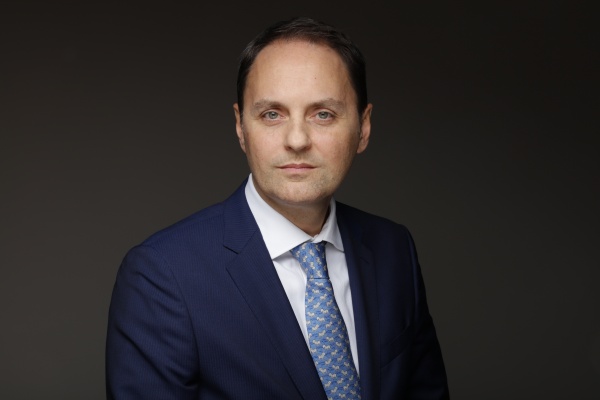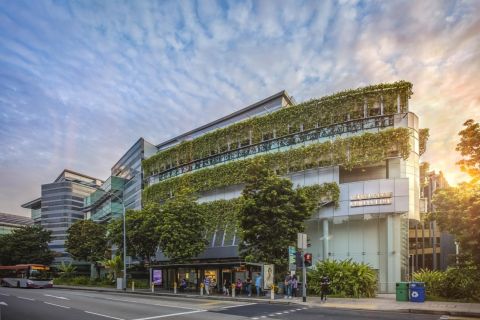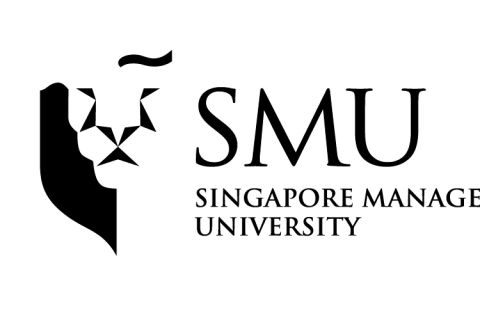
By Alvin Lee
SMU Office of Research & Tech Transfer – In a 2020 paper titled “London Heathrow Airport Uses Real-Time Analytics for Improving Operations”, Professor Bert De Reyck, Dean of SMU Lee Kong Chian School of Business (LKCSB), described a recent project he worked on to improve Heathrow’s operations. The system he developed is designed to predict the exact time passengers show up at immigration and security, and “can predict which passengers are likely to miss their connecting flights, reducing the likelihood that departures will incur delays while waiting for delayed passengers”.
Professor De Reyck worked on creating an accurate machine learning predictive model to handle real-time information such as flight arrival times and aircraft capacity – among dozens of other data sources – that prompt increased staffing at passport control to shorten waiting time at immigration points. This resulted in a “12 to 54 percent reduction in costs at the immigration and security areas”, and attracted attention from airports worldwide, including Singapore’s Changi Airport.
Speaking to the Office of Research & Tech Transfer, Professor De Reyck was unequivocal about the most difficult part of the project.
“I'm not exaggerating when I say 80 to 90 percent of my time is not spent on developing the AI system; that's the easy part. The hard part is identifying the data, gathering the data, cleaning the data,” explains Professor De Reyck, who took the helm at LKCSB on September 1. “We spent a lot of time trying to figure out: How can we track passengers? How do we know where they are? How do we know how long people took in the past?
“And even if there is [prior] data, it was often gathered without a clear idea of knowing what it was meant for. At Heathrow ultimately it worked out, and the system went in operation very shortly before COVID hit. But it doesn't always work out.”
Creating meaningful impact
The project, which required expertise in operations management, management science and computer science, is an example of the cross-disciplinary approach that Professor De Reyck believes is crucial in a first-rate business education. Understanding the need to design data collection with a clear vision of what it will be used for – “retail knew what they wanted to do with their data; transport, not so much” – is key to digital transformation efforts, he says.
The Dean also points to growing capacity at the other schools within SMU for cross-collaboration, such as with psychology and economics, on top of the obvious need to harness information systems in addressing the burning issues of digital transformation, sustainability, and long-term growth.
If that sounds like SMU’s Vision 2025 of creating meaningful impact, that is because it is.
“I've always been a big advocate of having impact [because] a business school is a professional school, like engineering or medicine or law,” asserts Professor De Reyck. “We're not here to do just Blue Sky research thinking. No, we need to have an impact. So I was glad that [SMU President] Lily [Kong] said, ‘Look, as a university, we want to do that.’
“It is one thing to help a business be more successful financially, but is that meaningful impact? And should we redefine what ‘successful’ means? I think that is something we should start focusing on. I think we're already doing that in certain pockets, but maybe having that as a thread throughout what we do, I think would be inspiring.”
In light of the recent 2021 United Nations Climate Conference, or COP26, sustainability has well and truly taken centre stage. Big corporations are pledging net zero – taking away as much greenhouse gases from the environment as they emit – commitments even though a recent MSCI report suggests that current emission plans are not enough to ward off severe climate calamity.
It brings to mind the oft-cited perception that business executives’ primary duty is to shareholders and maximising financial returns, with cynics often adding “at the expense of all else” to that assessment. Business schools did not escape the scrutiny.
“I think the narrative there is maybe a little bit old,” observes the Dean, who points out that most business schools have taken on board the criticism and lessons borne of the Great Financial Crisis. Professor De Reyck argues that business education sometimes comes across as “nothing but the bottom line matters” as a result of needing to quantify and measure performance.
“When the field of business and management started looking at itself in a scientific way, it needed some kind of theoretical framework. Academics naturally went to economics, and they said, ‘Well, we can apply their frameworks to do this.’ And in economics, most of the models were about wealth maximisation.
“If you're trying to optimise a business, whether it's marketing or logistics operations, it's tempting to optimise things that are easily measurable such as cash flow, profits, and market share. So you say, ‘Let's maximise that and see how we can do that.’ Whereas other things, such as impact on society, even impact on environment is harder to measure.
“So I don't think there was a conscious thought of, ‘It's all about the bottom line.’ It was more about, ‘That's what economics does and it's easy to measure.’”
Creating culture, success, and an entrepreneurial spirit
That tendency to measure everything was how Professor De Reyck had approached his previous stint as the Founding Dean of UCL School of Management because “I’m a management scientist [and] I love my Excel spreadsheets”. While he did try quantifying everything from “teaching performance or attitudes of students or satisfaction of our colleagues”, he discovered what really mattered: culture and people.
“I can have the biggest vision in the world, or even the best financial kind of knowledge, but we need to be able to attract, retain, and motivate and inspire the best people,” reflects the Dean. Instead of quantifying whether teaching 20 grad students was more demanding than teaching 120 undergrads, it was about:
“I know you're teaching a bigger class than I am. And I appreciate that. And I thank you for it rather than giving you 0.1 extra in your courseload. You just say, ‘Thanks so much for carrying this burden, you're doing a brilliant job,’ just that kind of culture rather than the more scientific culture, and that worked. As long as people feel recognised and appreciated for what they do, that was all they needed, they didn't need that 0.1. And I think this is something I'm going to try and create here.”
Professor De Reyck, who focused on entrepreneurship education during his time in London, is keen to replicate in Singapore the English capital’s success in encouraging startup activity. Describing the London entrepreneurship scene in 2007 as “practically non-existent” but which has since flourished, the Dean notes that business school graduates in the UK now shun consultancy and finance jobs for the tech and innovation sectors. In contrast, finance is still a major draw in Singapore.
“What I'd like to do as quickly as we can is to start up a Masters in Entrepreneurship programme,” he muses while recognising the existing SMU Masters of Science in Innovation. “There's also initial discussions about having some kind of, not an incubator, not even an accelerator, but a centre where high-growth companies could come to and learn from each other and learn from faculty at SMU and industry advisors.
“So, digital transformation, entrepreneurship, and sustainability, I think these are three focus areas we could do a lot more in.”
Back to Research@SMU Nov 2021 Issue
See More News
Want to see more of SMU Research?
Sign up for Research@SMU e-newslettter to know more about our research and research-related events!
If you would like to remove yourself from all our mailing list, please visit https://eservices.smu.edu.sg/internet/DNC/Default.aspx

